WIDSR project
S.H.E. See Her Exceed Mentoring Programme

About the programme
In addressing the under-representation of women in marine science, the Women in Deep-Sea Research (WIDSR) project is contributing to the design and development of tailored capacity development initiatives to increase the participation and enable the leadership of women scientists from developing States in deep-sea research.
WIDSR also strives to mainstream gender equity policy by decision-makers in deep-sea research-related sectors/academic fields.
A survey of 128 participants across 23 Least Developed Countries, Landlocked Developing Countries and Small Island Developing States reported that more than half (59 per cent) of employed women have in the past declined opportunities to work or study abroad, which can be vital to success in deep-sea research related careers.
One of the key challenges that was confirmed by the survey participants is that (women) students in deep-sea research face a lack of career guidance, thus reinforcing the importance of the mentoring programme.
As part of WIDSR, we are now extending our commitment by launching a women in deep-sea research mentoring programme, called S.H.E. See Her Exceed.
Who is it aimed at?
Women scientists from developing countries working in deep-sea related science.
S.H.E. See Her Exceed
The S.H.E. Mentorship Programme is a 12-month initiative under the WIDSR Project to address the pressing need for tailored capacity development and gender equity promotion in deep-sea research. The first pilot was launched in 2023 and will end in June 2025.
The programme is designed to:
- Facilitate personal growth and career advancement of women scientists from developing countries specializing in deep-sea research.
- Support the development of professional networks for women scientists in deep-sea-related fields.
- Assist in the development of professional skills, with a particular emphasis on leadership skills.
- Break down cultural barriers within deep-sea research and associated career paths.
- Facilitate the contributions of women scientists to the ISA Action Plan for marine scientific research.
Mentees are selected through an application review process and carefully matched with a mentor. Once paired, they participate in a comprehensive programme, where they outline three goals focused on personal, professional, and scientific development. These goals align with the research priorities under the ISA Marine Scientific Research (MSR) Action Plan.
What impact will this mentoring programme have on women in deep-sea science from developing countries?
- Establishment of a community of practice of women scientists in deep-sea research, especially targeting developing countries.
- Advancement of the ISA Action Plan for marine scientific research.
- Increased career opportunities for junior women in scientific research.
What is the schedule?
This is a 12-month programme.
During summer and early autumn the selection and matching process of mentees will take place.
Mentees will be assigned a mentor from our approved panel.
The kick-off meetings between mentors and the selected mentees are foreseen to take place in Q4 of 2023.
The mentee will put forward three goals for her personal, professional, and scientific development related to the research priorities under the ISA MSR Action plan.
Throughout the mentoring cycle, the mentor and mentee will work on the three goals in eight online sessions, including feedback loops to refine the needs and goals of the mentee.
A mid-term in-person workshop will be organized to allow for best practice exchange, facilitate networking opportunities between mentor-mentee pairs, and expose mentors and mentees by providing the opportunity for them to connect with other stakeholders.
MENTORS
Our mentors are senior and experienced professionals (women and men) from the fields of deep-sea related research disciplines and careers who are active in either academia or the industry.
The role of the mentor is to provide guidance, advice and counsel to the mentees to support their development goals.
The mentor, as a role model, provides resources and opportunities for the mentee’s development, facilitates the sharing of a professional network, helps set high but achievable goals, makes realistic plans, monitors progress and provides feedback.
Meet our mentors
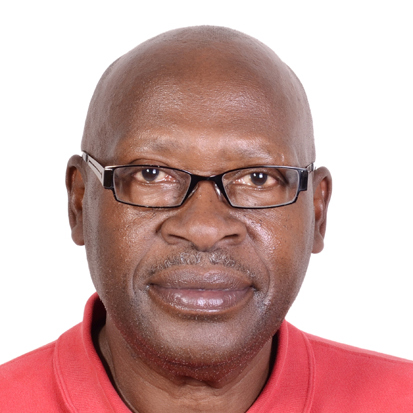
JOSHUA TIWANGYE TUHUMWIR
Member of ISA Legal and Technical Commission
Vision for the mentees
Enlarge a pool of women who are well-grounded in deep-sea knowledge.
Mr. Tuhumwire is a Ugandan geologist and graduate of Makerere University, Uganda, and Vrije Universiteit Brussel, Belgium. He joined Uganda’s civil service as a junior geologist at the Department of Geological Survey and Mines in 1980. He spent the next 30 years at the same institution until my retirement in 2010. Mr. Tuhumwire undertook various geological mapping and mineral exploration work at the start of his career. Later, he joined the senior management, planning and supervising projects, eventually heading the institution for ten years. He had a stint consulting in mineral exploration and serving the corporate world in Uganda’s nascent oil and gas sector. From 2007 to 2020, Mr. Tuhumwire was involved in the United Nations World Ocean Assessments (WOA), initially in the assessment of assessments and later in the WOAI and WOAII as a member of the group of experts. He has been a member of the Legal and Technical Commission of the International Seabed Authority since 2017.
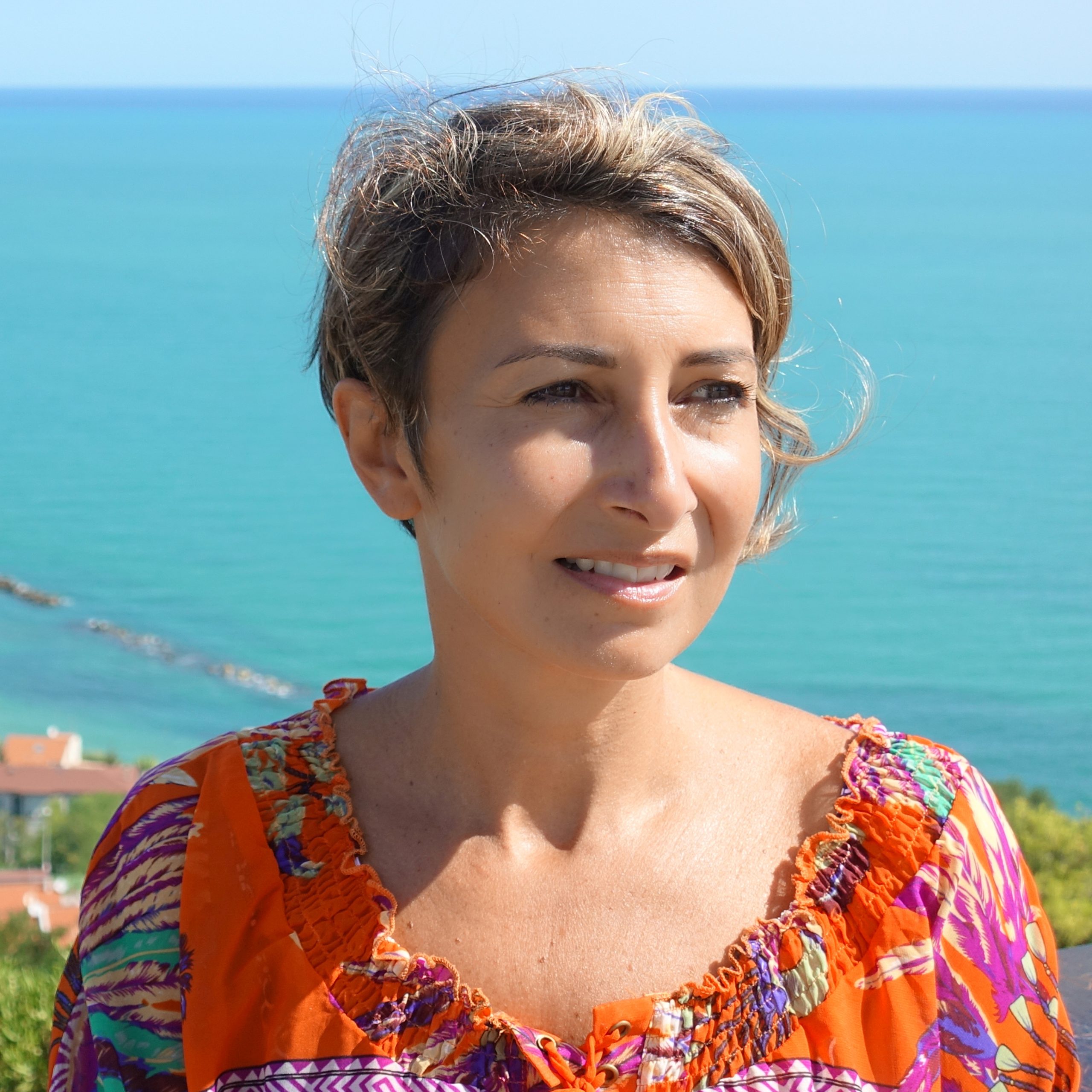
MARZIA ROVERE
Researcher, marine geology, Institute of Marine Sciences of the National Research Council of Italy
Vision for the mentees
Traditionally, deep-sea research, especially in geophysics and hydrography, has been male-dominated due to cultural prejudices under the garb of the harsh work environment. As technology and fields of knowledge have evolved, more and more young marine scientists are women. This is a very welcome change.
Dr. Marzia Rovere has a PhD in earth sciences and works as a researcher in marine geology at the Institute of Marine Sciences of the National Research Council of Italy. Her scientific research deals with the seafloor and sub-seafloor mapping topics, including submarine landslides and their potential to trigger tsunamis, sediment transport in coastal and slope areas, fluid flow along faults, including the threat they pose to offshore installations. Her interests also focus on marine georesources, including aggregates on continental shelves, cold seeps and hydrothermal habitats. Dr. Rovere participates in several EU projects, including EMODnet Bathymetry, where she coordinates the Central Mediterranean DTM contribution. She is a vice chair of the joint IOC-IHO GEBCO Guiding Committee and served as a member of the Legal and Technical Commission of the International Seabed Authority in 2015-2016. Dr. Rovere was a chief scientist on dozens of oceanographic cruises in the Mediterranean and the Atlantic Ocean.
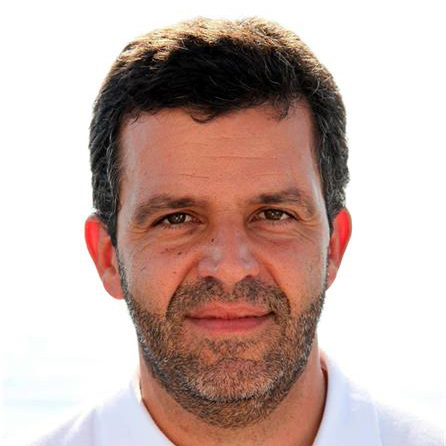
PEDRO MADUREIRA
Associate Professor, University of Évora
Vision for the mentees
While participating as a mentor in the pilot mentoring programme for women in deep-sea-related research, I hope to help mentees develop deep research that everyone can “sea.”
Dr. Pedro Madureira is an associate professor at the University of Évora, Portugal. He is the deputy head of the Task Group for the Extension of the Portuguese Continental Shelf and the scientific and technical coordinator of the Continental Shelf Project. Dr. Madureira was the principal investigator of several oceanographic campaigns in the North Atlantic throughout his career. From 2012 to 2022, Dr. Madureira served as a member of the Legal and Technical Commission of the International Seabed Authority. His main academic interests include the evolution of volcanic islands, the formation and distribution of deep-sea mineral resources, the marine environment and deep-seabed exploration.
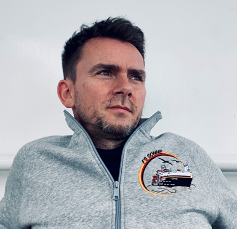
FRANÇOIS CHARLET
Exploration Manager, Global Sea Mineral Resources NV
Vision for the mentees
This programme should allow the development or refinement of mentee’s leadership skills, improve their communication skills and open them up to new ideas and practices.
François Charlet, currently exploration manager at Global Sea Mineral Resources NV, oversees the offshore campaigns related to resource definition and environmental baseline studies. After studying marine geology and sedimentology in France where he obtained his master’s degree from the University of Lille I, Mr. Charlet began his professional career in Belgium, as a research assistant at the Renard Center of Marine Geology, Ghent University. In 2005, he joined the DEME-Group as a marine geologist, and worked mainly on soil investigations worldwide, as part of foreign dredging and environmental projects. In 2013, he joined Global Sea Mineral Resources NV as an exploration manager to lead exploration and research expeditions at sea. Up to now, he has led and participated in eight offshore campaigns in the Clarion-Clipperton Zone, Pacific Ocean, and Cook Islands, EEZ.
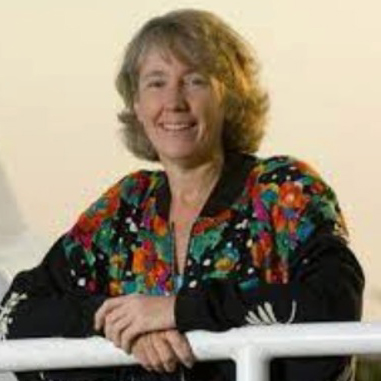
CINDY VAN DOVER
Distinguished Professor of biological oceanography, Duke University
Vision for the mentees
I envision women scientists emerging further empowered as leaders in deep-sea research creating new knowledge, innovating in the use of technology and retaining a sense of wonder at the deep-sea wilderness.
Dr. Cindy Van Dover, a distinguished professor of biological oceanography at Duke University, North Carolina, USA, was an early explorer of deep-sea hydrothermal vents in the 1980s. She earned her PhD from the WHOI-MIT Joint Program in Oceanography in 1989. During her post-doctoral work, Dr. Van Dover joined the team that operates the deep-submergence vehicle, Alvin, becoming a US Navy-certified Alvin pilot in 1990. She has made nearly 100 dives to the deep seabed, including 48 dives as a pilot-in-command of Alvin. She has been an early adopter of emerging deep-submergence technology, including remotely operated vehicles, autonomous underwater vehicles and telepresence science. Dr. Van Dover’s research interests include biogeography, trophic ecology and adaptations of species in chemosynthetic ecosystems. In recent years, her contributions have primarily focused on the emergent field of deep-sea environmental management, particularly in the context of deep-sea mining.
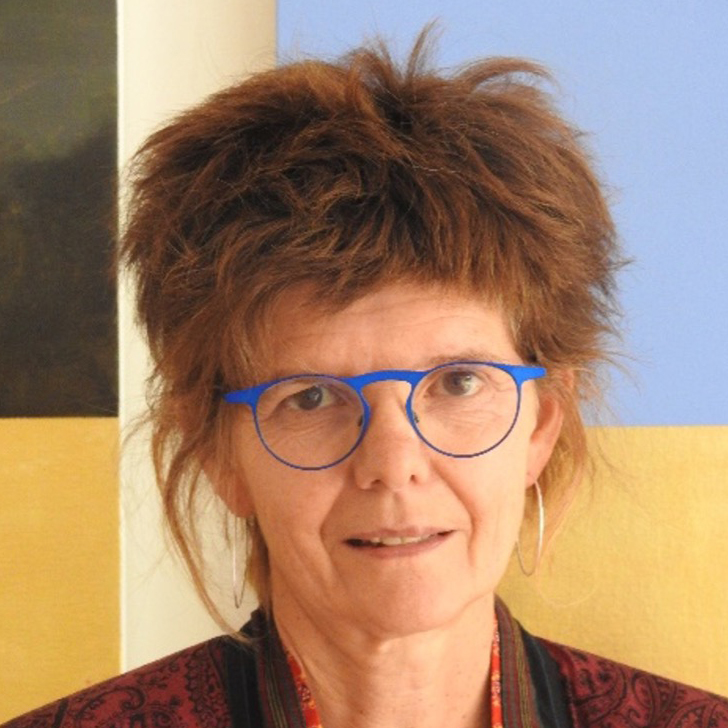
ANN VANREUSEL
Professor, marine and lacustrine sciences and management, University of Gent
Vision for the mentees
I hope to share my experiences and ideas about the importance of ocean training, internationalization in deep-sea research, including in the global south, and the leadership role women can take in marine science based on my personal experiences in capacity building in different parts of the world.
Dr. Ann Vanreusel studied biology at Hasselt University and completed her licentiate studies at the University of Ghent, Belgium. She joined the research group in marine biology and started a PhD on the ecology of meiofauna in coastal environments. As a post-doctoral researcher at the University of Ghent, she focused on deep-sea research, especially in the context of various European projects. Dr. Vanreusel has more than 250 scientific publications in this field and was a principal scientist during various research campaigns on the European margins, from Portugal to Ireland. Dr. Vanreusel is a full professor at the University of Ghent, where she teaches and co-organizes the inter-university course in marine and lacustrine sciences and management. She supervised more than 20 PhD students in her career.
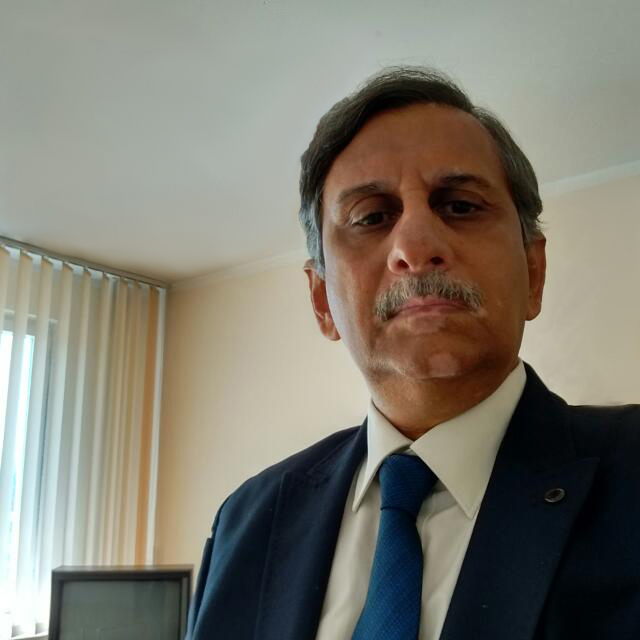
RAHUL SHARMA
Freelance consultant, deep-sea mining
Vision for the mentees
Dive deep and soar high.
Dr. Rahul Sharma is a former chief scientist of the National Institute of Oceanography, Goa, India. With an experience of almost 40 years in the field of exploration and exploitation of deep-sea minerals, he is currently a freelance consultant in deep-sea mining. His academic oeuvre includes more than 65 papers and articles in international scientific journals and books, including the Oxford Encyclopedia, presenting papers at about 60 conferences around the world and serving as an editor for three special issues of international journals and three books on deep-sea mining by Springer. Dr. Sharma’s professional assignments include engagements as a visiting scientist to Japan, a visiting professor to Saudi Arabia, a member of the UNIDO mission to assess the status of deep-sea mining technologies in Europe, the USA and Japan, and a consultant to the International Seabed Authority, Jamaica. In addition to his research career, he has been involved with several activities relating to science communication and outreach and training programmes for international participants, professionals and students.
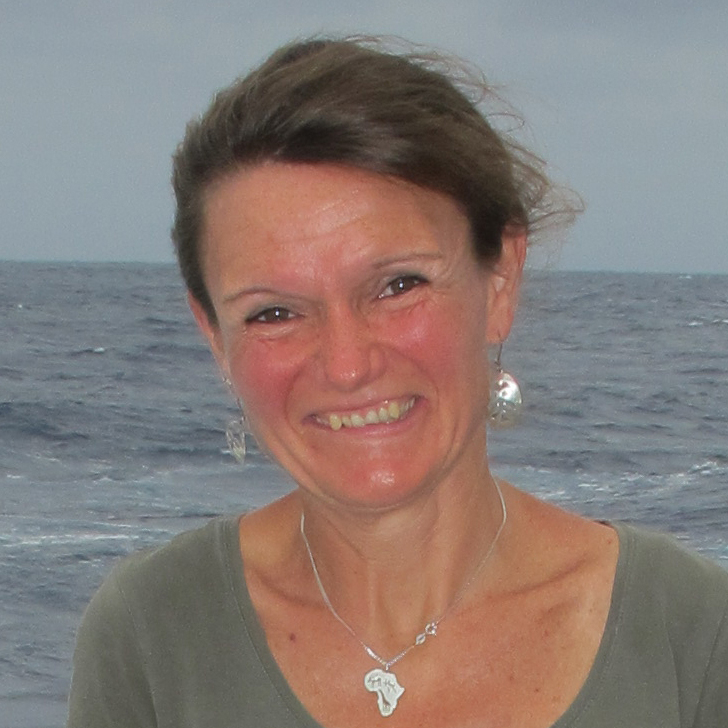
ANNEMIEK VINK
Marine geo-biologist, German Federal Institute for Geosciences and Natural Resources
Vision for the mentees
Women, connect. Together we are strong.
Dr. Annemiek Vink is a marine geobiologist working as a manager of a project to explore polymetallic nodules in the German Federal Institute for Geosciences and Natural Resources contract area in the Clarion-Clipperton Zone. Her focus is on collecting adequate environmental baseline data and analyzing the potential impacts of nodule exploitation on faunal communities and ecosystems (e.g., due to nodule removal, sediment plume dispersion and settling). Dr. Vink has participated in several research and exploration cruises into the Clarion-Clipperton Zone since 2013. One of the major aims of the project is to work closely with renowned scientific institutions in Germany and abroad to guarantee professional, scientific input to the exploration project and to provide sampling and data-sharing opportunities to the stakeholder community. This creates effective synergies and focused outputs that are valuable from a science perspective and would also help inform policy and the development of robust regulations related to deep-sea mining and environmental management.
Meet our mentees
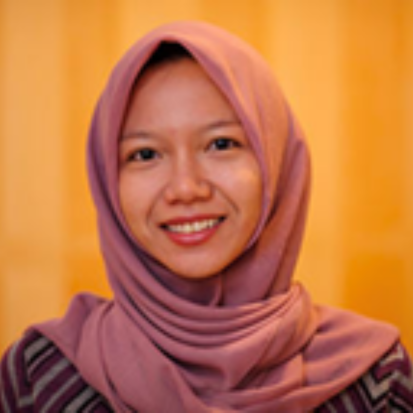
INTAN SUCI NURHATI
Vision
To gain interdisciplinary guidance in deep-sea issues advancing my international collaborations and promote gender diversity in strategic positions within my workplace.
Dr. Intan Suci Nurhati is a paleoclimate/oceanographer. She is currently the head of the research centre for Deep Sea, National Research and Innovation Agency (BRIN) in Indonesia. She earned her B.A. from Wesleyan University and Ph.D. from Georgia Institute of Technology. She received the Freeman Asian Scholarship (2001), Green Talent Award from the German Federal Ministry of Education and Research (2013), UN IOC-WESTPAC Best Young Scientist Award (2014), LIPI Young Scientist Award (2018), as well as the Ikon Prestasi Pancasila 2019 dan Satyalencana Wira Karya 2021 from the Government of Indonesia. She was a lead and contributing author for the Intergovernmental Panel on Climate Change (IPCC)’s Sixth Assessment Report. An avid science communicator, she has given TEDxJakarta and UNESCO Masterclass Series talks. She has conducted field sampling in Southeast Asia, Kiribati, Kuwait, and Hong Kong.
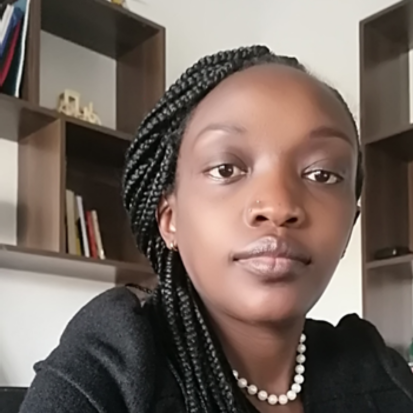
LUCY NJUE
Vision
To realise my full potential and increase my capacity for both personal and professional growth.
Lucy Njue is a geoscientist with over 16 years of expertise in the geothermal and mining industries. She holds an honours degree from the University of Nairobi and has contributed to regional geothermal training and consultancies. Lucy is proficient in field and borehole geology. As a Senior Geologist at the Geothermal Development Company since 2009, Lucy has played a key role in the Menengai geothermal project, leading the geology section and contributing to strategic development initiatives. Lucy’s consultancy work extends to Tanzania and Rwanda, where she has led geological assessments and well-targeting efforts in the Menengai geothermal field. She has chaired the GDC Technical Exchange Forum and served as Treasurer of the Geology Society of Kenya, demonstrating her leadership in the geosciences community. Lucy has previously served on various committees at GDC, advocating for gender mainstreaming and disability inclusion.
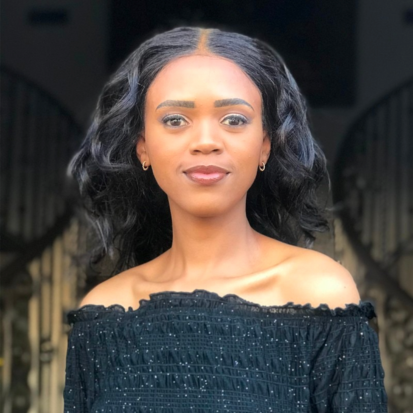
MPHO LYDIA SEHLABO
Vision
To contribute to the empowerment and enhanced leadership of women scientists in marine scientific research from developing states.
Mpho Lydia Sehlabo has a multidisciplinary educational background, which includes a BSc in Marine Biology and Ocean and Atmosphere Science from the University of Cape Town. Mpho demonstrates a passion for oceanography and environmental research. She has served in various leadership roles throughout her academic journey and has shown entrepreneurial acumen. Mpho’s employment history includes various roles at the University of Cape Town. Outside of her academic and professional pursuits, Mpho enjoys poetry, literature, and volunteering at non-profit organisations. Mpho is the Founder and CEO of the Mpho Sehlabo Foundation donating essentials to students experience funding crises.
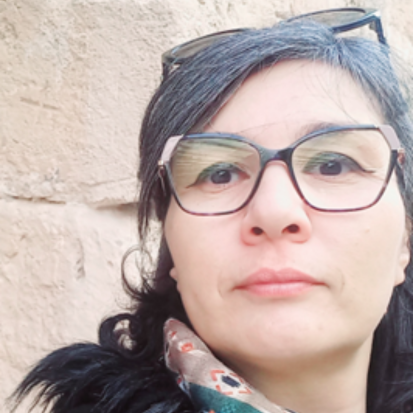
RANDA MEJRI
Vision
To enhance my skills in deep sea sciences to integrate this fascinating theme into our national curricula and also its development in the Mediterranean Sea.
Randa Mejri is an Assistant Professor in marine biology and animal biology at the University of Sfax in Tunisia with extensive experience in marine biology, functional ecology, biogeography, and sustainable development. Randa’s educational background includes a PhD thesis on the checklist of Gobiidae fish species and the morphometric and genetic characterization of Mediterranean populations. She also holds a Master’s degree focusing on biodiversity and the evolution of coastal ecosystems and a Bachelor’s degree in Biological Sciences. Throughout her career, Randa has contributed significantly to scientific research, publishing numerous papers on marine biodiversity, genetic architecture, and coastal dynamics. dditionally, she is involved in various associations and networks, including the Tunisian Association of Doctors and PhD Students in Sciences and the African Network of Deep-Water Researchers.
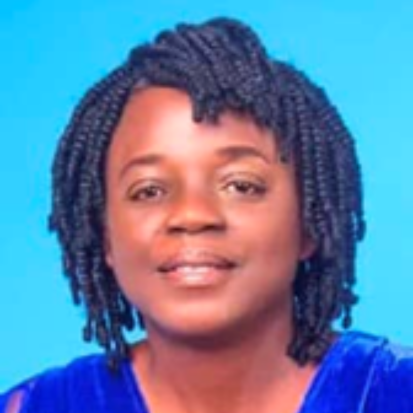
OLUYEMISI OLUWADARE
Vision
To enable me to contribute to the growth and advancement of marine geosciences research in my organization and my country Nigeria at large.
Oluyemisi Oluwadare is a Geochemist and Economic Geologist with over 20 years of experience in research and fieldwork. Currently serving as Assistant Director at the Nigerian Geological Survey Agency in FCT, Abuja, Oluyemisi specializes in identifying deposits in construction materials and assessing their suitability for various applications such as concrete aggregates. She is adept at interpreting research data, preparing geological reports, maps, and diagrams, and developing operational methods related to geology, geochemistry, and mineral exploration. Her role also involves coordinating fieldwork activities. Oluyemisi holds a Master of Science (Hons) in Mineral Exploration and Mining Geology from the University of Jos, where she is currently pursuing her postgraduate diploma in Mineral Exploration. She also earned a postgraduate diploma in Mineral Exploration from the Nigerian Institute of Mining and Geosciences in affiliation with the University of Jos.
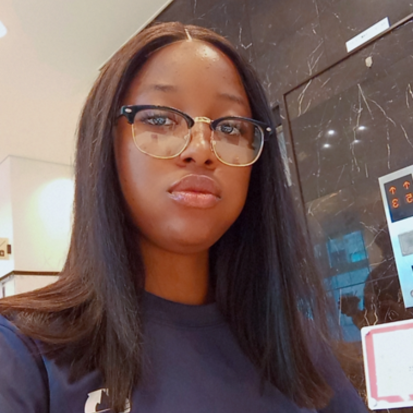
LJEOMA EUNICE ORJI
Vision
To draw upon the wealth of experience of my mentor to improve my personal and professional growth. Through this mentorship, I aim to expand my network, recognizing its pivotal role in propelling my career forward.
Ijeoma Eunice Orji has a diverse background in naval operations, geology, and hydrography. She has a B.Sc. (Hons) in Geology and Exploration Geophysics from Ebonyi State University in 2016 and has completed the Basic Training Course at the Nigerian Naval College. Her sea experience includes serving as a watchkeeping officer aboard Nigerian Navy ships, where she was responsible for navigation and watchkeeping duties. Transitioning to shore-based roles, Orji has worked at the Nigerian Navy Hydrographic Office since December 2022 as a Staff Officer III Survey Operation/Maritime Safety Information (MSI) Officer. In this capacity, she manages survey data, oversees data processing and quality control, drafts notices to mariners, and prepares survey reports. Beyond her professional pursuits, Orji engages in extracurricular activities such as reading, travelling, cooking, and music.
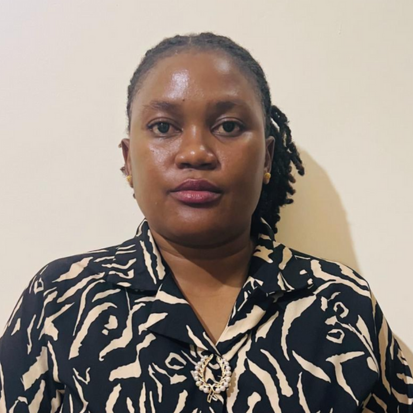
ROSE GODFREY MIKA
Vision
By embracing innovation and fostering a deep understanding of deep-sea exploration, I aspire to become a catalyst for positive change within the scientific community and beyond.
Rose Godfrey Mika, a Tanzanian national, holds a Bachelor of Science degree with honours in Environmental Science and Management from Sokoine University of Agriculture (SUA). Rose has pursued professional development as an Environmental Scientist at The Mining Commission, a Permaculture Officer at TanzaniteOne Mining Ltd, and as an Environmental Officer at SHEQ Consult Ltd and Bulyanhulu Gold Mine. Through her participation in the mentorship program, Rose seeks to deepen her expertise in deep-sea-related science and contribute meaningfully to her field.
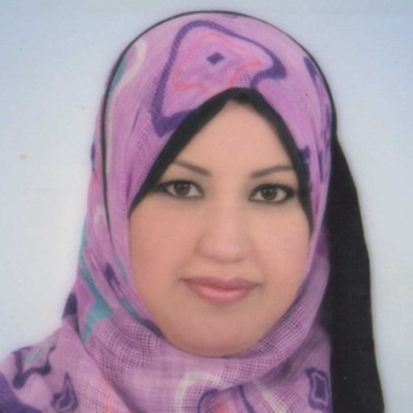
SUZAN MOHAMED EL-GHARABAWY
Vision
To accelerate my growth both as a scientist and manager of my research team. Additionally, to build a supportive community of women scientists, dedicated to advancing our understanding of the deep ocean.
Dr. Suzan Mohamed El-Gharabawy is a marine geophysicist and environmental scientist, serving as the Vice President of the National Institute of Oceanography and Fisheries (NIOF) for Entrepreneurship and Community Service in Egypt. With a PhD and Master’s degree in Environmental Science focusing on quality control, she has led numerous research projects and international expeditions exploring marine environments. Dr. El-Gharabawy has extensive experience in academia, having lectured and conducted research at various universities and institutions. She has contributed significantly to the scientific literature, publishing numerous papers and scientific reports. Additionally, she has been actively involved in international conferences, workshops, and symposiums, advocating for ocean conservation and sustainable development.

